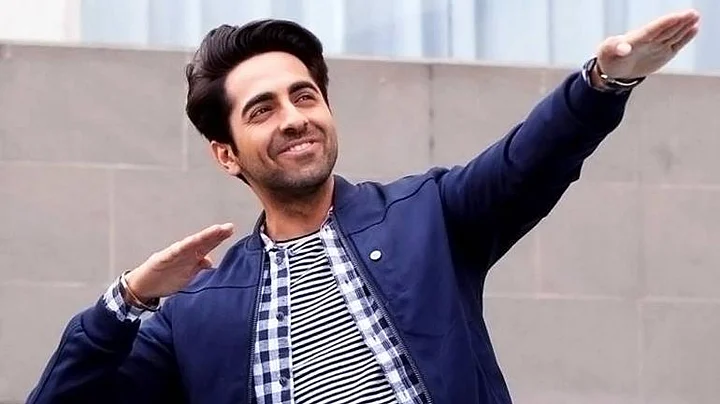At a time when some of the biggest stars are unable to guarantee success at the box office, Ayushmann Khurrana has managed to score seven back-to-back hits. His latest release, Bala, crossed Rs 50 crore in four days and is well on its way to become a blockbuster. And this feat puts him in the list of Bollywood’s most bankable stars.
But how did Ayushmann manage to get to this position? Here’s decoding some of the reasons why Ayushmann’s films have achieved the box office numbers they have.
Steady Rise
It’s been a steady rise for brand Ayushmann. His first major box-office success after his debut hit Vicky Donor (2012) came in the form of the sleeper hit, Dum Laga Ke Haisha. It got a very modest opening of Rs 1.20 crore, but a positive word of mouth led the film to make Rs 30 crore in lifetime collections.
The opening day figures of Ayushmann’s films have shown a consistent rise with every release since Dum Laga Ke Haisha, which means that more and more people have started coming into the theatres on the release day to watch films starring the actor, and his brand is only growing.
“The opening day figures of his films have only increased with every film. That is a sign that his audience is growing with every film. That’s the faith which the audience has started developing in him. They feel if it’s Ayushmann’s film it will be content-driven and well-made. As your fan following starts increasing the numbers also start increasing.”Atul Mohan, Movie Business Analyst
Here’s how Ayushmann’s six consecutive hits before Bala have performed at the box office.
Word of Mouth
All of his seven consecutive box office successes have also come with critical acclaim and audience appreciation, something that is a rarity.
It has a lot to do with families and the young audience enjoying his films alike. “Ayushmann, I can easily say, has cracked the formula of telling taboo-breaking stories in a desi and quirky manner, so entire families can go and watch. When you take a taboo subject and deal with it in a clean humour kind of way, that’s one of the best success formulas he has created for himself,” said trade analyst Girish Johar.
According to media consulting firm Ormax Media, all of Ayushmann’s last six releases (before Bala) have received excellent word of mouth.
Production Cost
Maintaining the right budget depending on the subject of the film is a key part of the economics which several big stars have got all wrong in the last few years, with some big films failing to make good profits at the box office.
This is something that all Ayushmann and the producers of his films have managed to get right.
Ayushmann’s films are generally shot in India, 30 to 40 days at a stretch, and the budget is around Rs 25-30-crore, giving his films ample space to make profits. Despite the success, makers have made sure to keep that cost of production and the promotion and advertising cost of his films under control.
His two other 2019 releases are big proof of the fact that Ayushmann knows his economics too. Dream Girl was made at a budget of Rs 30 crore and went on to make Rs 141.30 crore at the box-office. On the other hand, the production cost of his other release, Article 15, was lower, at Rs 25 crore, owing to its niche content. The film still became a hit, raking in Rs 66 crore at the box office.
“Picking up the right subjects that the common man relate to. Properly budgeting and marketing based on the subject of each film. The balance of these three has worked for him.”Atul Mohan, movie business analyst
Ayushmann, the Brand
Ayushamann has managed to create a niche for himself by choosing characters that are relatable. A middle-class guy with a problem that many movie-goers can identify with! From sperm donation and erectile dysfunction to caste crimes and a blind man in the centre of a murder - Ayushmann has picked some of the most interesting content.
Also, his choice of films seems to have remained the same since the beginning. He chose a quirky subject like sperm donation in the form of Vicky Donor to make his debut. Even though his next few films like Nautanki Saala!, Bewakoofiyaan and Hawaizaada didn’t work, he has always shown intent to pick interesting subjects. Today, he is known as an actor who knows which scripts to pick.
But apart from a knack for picking good scripts with a quirky treatment, Ayushmann has also managed to create a niche for himself by playing the middle-class/small town guy who is extremely relatable on screen.
“Actors like Amol Palekar and Sanjeev Kumar were known for their middle-class and meaningful cinema respectively. In the same way, Ayushmann has made that contemporary space for himself where a common man can identify with his characters. He and his films are relatable, and that is working big time,” says Atul.
(At The Quint, we question everything. Play an active role in shaping our journalism by becoming a member today.)
